Oakden nursing home abuse and secrecy creates crisis in confidence amid ongoing government secrecy
ZERO transparency around the aged care sector is creating a crisis of confidence over the care of some our most vulnerable, with Oakden ICAC secrecy the icing on the cake.
SA News
Don't miss out on the headlines from SA News. Followed categories will be added to My News.
- Daniel Wills: Government’s secrecy on Oakden inquiry will be costly
- Hidden camera captures abuse, apparent suffocation at nursing home
- Oakden: Another case of alleged abuse at aged care home
- Oakden whistleblower says he was shut out by minister
- Nursing home: Allegations of barbaric assault and neglect
CARING for those who gave us life, at the end of their own lives, is one of the most fundamental responsibilities of any son of daughter.
It is also the responsibility they and the elderly themselves face with the most trepidation. Patients relying on aged-care services, as well as their offspring, must navigate their way through a complex system with little knowledge or experience.
Uppermost in their minds — fuelled by horror stories of the luckless who have suffered in a generally good system with a few rotten apples — is the frequently hidden shame of elder abuse.
As the current Oakden scandal has shown, choosing the right aged-care facility is often reduced to a gamble, in a sector where wrongdoing is shrouded in secrecy.
“If you’re planning to pick up one egg in 100 there is always the fear that it will be the rotten one,’’ explains Ian Yates, chief executive of the nation’s premier aged-care lobby group, Council on the Ageing.
Mr Yates says the system generally provides good care.
The fact that the State Government has decided to contribute to the secrecy by keeping secret the ICAC inquiry into its own Oakden abuse scandal has shocked and angered many, including victims’ families.
In Parliament this month, Labor and the independents used their votes to deny ICAC the power to hold a public inquiry.
Not only will witness after witness be denied the opportunity to reveal what went on at the state-run mental health aged-care facility but their views will only become public if ICAC boss Bruce Lander decides to release a report on what was said.
It means information for the families will continue to be drip-fed from the media, the State Government, or from questions in Parliament.
Alma Krecu’s father, Ermanno “Eddie” Serpo — a resident at Oakden — was allegedly dragged by the neck and thrown by a carer. Last month, after a scathing report by chief psychiatrist Aaron Groves describing chronic abuse and neglect, she found that the carer she complained about was still working at the facility.
Ms Krecu was prepared to go public with her concerns after Mr Groves’ report found systemic abuse of residents at the facility — many with dementia — and that staff had been referred to police and medical authorities for investigation.
But what was unusual about the revelation of the carer’s continuing employment at Oakden was not that the system had tolerated his alleged behaviour but how Ms Krecu found out.
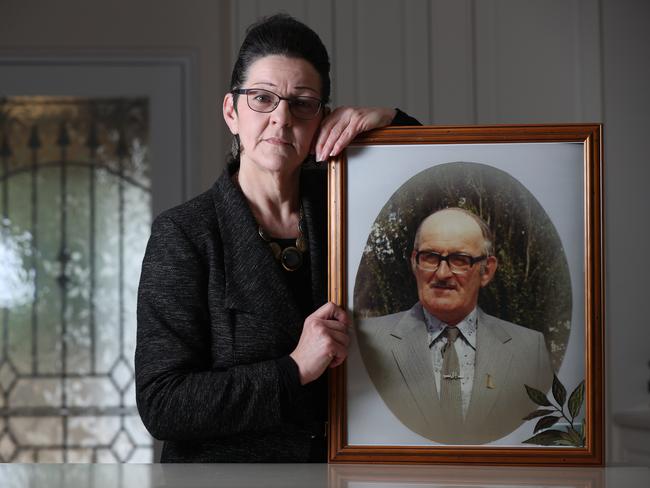
“We were waiting and I saw a carer leave the premises and walk down the road, presumedly to get lunch,’’ she said.
“He is one of the carers that we have reported. To see him here ... shocked doesn’t even describe how I felt. And disappointed.
“I again have no faith. I arrive here to find a carer who should be suspended.
“My mother witnessed him physically push a resident against a wall and we made complaints over the years with him and another staff member.”
Families of aged-care abuse victims protesting against the secrecy surrounding the ICAC inquiry say it is part of a much wider problem of accessing information from the troubled sector.
It is governed by the Aged Care Act, the secrecy provisions of which are parallel only in terrorism and organised-crime legislation.
One person who has more reason than most to confront this shroud of secrecy is Noleen Hausler, who took the law into her own hands when she suspected ill-treatment of her father at the hands of carers. Desperate for information, she installed a hidden camera in the room of her bedridden father, Clarence, 90, at the Mitcham Residential Care Facility, and captured 20 minutes of abuse by a carer.
The footage showing the almost defenceless Mr Hausler being force-fed, harassed and assaulted, shocked the nation when it was aired in 2015.
Ms Hausler remains hopeful it will create lasting change in the sector.
“I get very upset watching everything that is going on at Oakden because it is a reflection of the fact that things have not yet changed and they should have changed,’’ she says.
“The secrecy — we’re still just getting the whitewash, or ‘Nothing to see here’ or ‘They’ve met the standard’, or ‘The authorities can’t apply the sanctions that they want to.’ ”
Ms Hausler is not alone in decrying the ability of victims to access information. Victims’ Rights Commissioner Michael O’Connell says the flaw that denies ICAC the ability to hold hearings in public is a denial of justice for all victims.
“Open justice is one of the fundamental principles of criminal proceedings and coronial inquests,’’ Mr O’Connell says.
“That the ICAC cannot hold public hearings is, therefore, inconsistent with open justice.
“The ICAC has a responsibility to expose corruption but also to raise awareness on it. This cannot happen behind always-closed doors.”
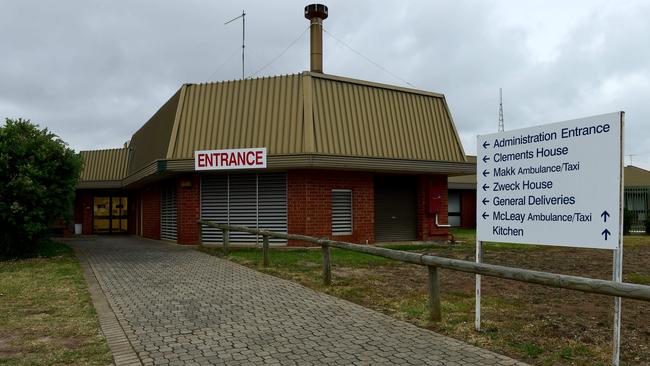
Council on the Ageing SA chief executive Jane Mussared says that despite the problems in SA “most people most of the time” were receiving good quality aged care.
“Absolutely it should be open; we will always deal with these issues much better if inquiries are in the public domain,’’ she says.
“The systems are supposed to build confidence and when they don’t get it right — when Oakden gets 44 marks out of 44 in its accreditation (as it did during the scandal) — then it is really important to make sure it is a robust system.’’
Administration of aged care is carried out by numerous federal and state government agencies.
Compliance with standards is a complex and secretive system accessible to family and friends only in part and only after numerous clicks on Federal Government websites.
Authority is divided between the Australian Aged Care Quality Agency, the Aged Care Complaints Commissioner and the Health Department.
The briefest details of breaches of standards appear on the website www.myagedcare.gov.au.
For example, a family may simply be told there has been a breach of “Accreditation Standard 1: Management systems, staffing and organisational development’’. Beyond this, the wall of secrecy is impenetrable.
The unpalatable detail of the complaint is never revealed; there is no indication of how many complaints have been substantiated against a facility, or where that facility ranks against other providers.
Unlike South Australian prisons, nobody can even lodge a Freedom of Information request to find out what is happening to their loved ones.
“You are just met with ‘Oh, it’s privacy and confidentiality’ and those sort of comments. Then they say ‘See it on the website’, but there are only a few words,” Ms Hausler says.
She is not alone, attracting 43,000 supporters with an online petition complaining about what her father had to endure and demanding legislation to allow families of vulnerable people the right to install monitoring devices in aged-care facilities.
She says the lack of transparency surrounding the ICAC inquiry into Oakden will further sap confidence in the entire system.
“The Oakden inquiry ... of course, it should be public. What those people have to go through, they should not have to be fighting the secrecy of the system as well,’’ Ms Hausler says.
“People will feel more comfortable about making a complaint. There should not be a need to go to the extent of what I have done because of the secrecy.’’
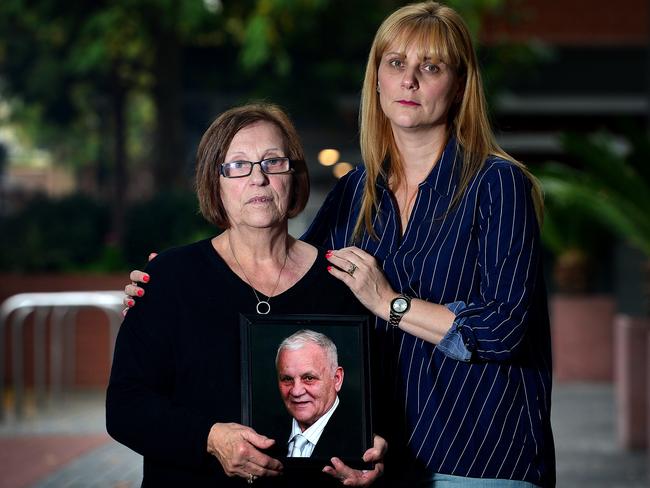
The horror of Oakden has already sent shockwaves throughout the industry nationally. The Federal Government last month announced a review of its aged-care quality regulation.
To work out its processes, though, did not identify the extent of the failures and why Oakden passed its accreditation despite the now-publicised problems.
Ms Hausler, who will also address the World Elder Abuse Awareness Day conference at the Stamford Grand Adelaide Hotel on Friday, says that, after doing the wrong thing, the owners of nursing homes continued to enjoy government protections that ordinary people do not.
“If you hop in a car and breach the road rules you get an instant fine and yet the Act is there to stop abuse,” she says.
“But if they breach the Act there seem to be no consequences.”
Aged Care Complaints Commissioner Rae Lamb is one of numerous public authorities to deal with scrutinising standards in the sector and dealing with complaints.
Although only complaints about government-funded centres, not private facilities, she hastens to add.
“Where people make complaints to us they are told what we have done and what we find and do,’’ she says. “Also, service providers can talk about their own complaints more than some do, while still meeting people’s privacy needs.
“That’s why I have written to industry representatives and publicly called for providers to talk about how many complaints they get and what they do about them and to find ways to make this information more available to people on websites and in publications, et cetera.’’
Mr Yates says “standards” administered by the Federal Government were a welcome addition to the sector in 1997, which led to many unsuitable operators being forced out of the industry.
But the Oakden inquiry has highlighted how the system has operated under secrecy despite the reforms of 1997. Until 2000, far more information about non-compliant nursing homes was available to the public via the Federal Government.
The homes didn’t like it and lobbied to force changes. As a result, the information was denied to the public.
The then Aged Care Minister Bronwyn Bishop was brutally frank about why: “So as not to put undue pressure on homes.’’
Mr Yates says, “Aged-care providers would be much better off being much more transparent with this stuff and they are reluctant to say ‘Well, we stuffed up’ and ‘That shouldn’t have happened’ or ‘This is what we’re doing about it’.’’
Council on the Ageing, along with many other organisations, has welcomed a Federal Government review of its systems but says the emphasis will be on whether the correct accreditation decisions are made in the wake of the Oakden scandal rather than addressing issues of secrecy.
“It doesn’t matter how tight a regulatory system you run, if the system doesn’t let the light in there will always be something that flies under the radar,’’ Mr Yates explains.
“Fundamentally, there needs to be much more involvement of consumers and families in this process.
“Too often, the involvement of the consumer and their family in the review process, the accreditation and standards process is token.’’
THE FACILITY
Oakden’s Older Persons Mental Health Service is for people who have a diagnosable mental-health disorder, psychiatric illness, or dementia with severe symptoms.
■ The facility, which is run by the State Government, has acute and non-acute beds across its wards.
■ Clements House is a 24-bed facility providing short-term transitional care for people with severe mental illness. There are currently 18 residents at Clements House receiving mental-health nursing support and rehabilitation aimed at enabling them to move to a residential care facility, other types of supported accommodation, or their own home.
■ The Makk and McLeay Nursing Home is a Commonwealth-funded facility of 40 beds, caring for residents with neurocognitive disorders and psychosocial symptoms of dementia and whose challenging behaviours have prevented them from residing in mainstream aged-care facilities. There are currently 31 residents at the nursing home.
THE REVIEW
Chief psychiatrist Dr Aaron Groves reviewed the operation of the Oakden facility at the request of Northern Adelaide Local Health Network chief executive Jackie Hanson.
The review was initiated after the family of Bob Spriggs raised concerns about his treatment at Oakden in the time leading up to his death.
Dr Groves’ three-month review culminated in a 146-page catalogue of horrors, which was released on April 20. What he found ranged from the apparent theft of patients’ property to overdosing and abuse, which he said appeared to be “transported from mid to late-20th century Glenside Hospital”.
The report also discovered a serious lack of leadership and a culture of cover-up among staff, who avoided responsibility for the unacceptable conditions and regularly said that was up to others.
THE VICTIMS
Numerous families of Oakden residents have come forward with horror stories of the treatment of their loved ones and the dilapidated state of the facility. They say they raised their concerns with numerous people on many occasions. Here are some of their stories:
BOB SPRIGGS
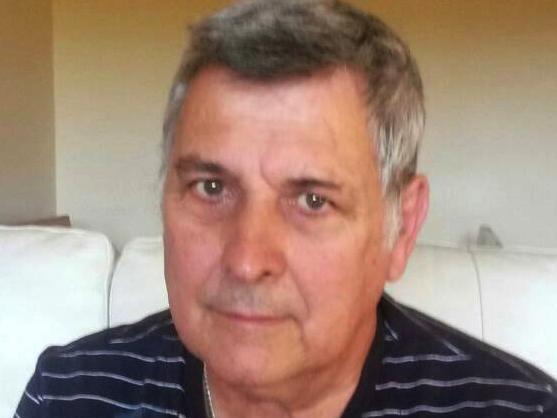
The 66-year-old was given 10 times the amount of his prescribed medication and had unexplained bruises while staying at the facility. His family complained about his mistreatment mid-last year. This prompted a comprehensive inquiry into the mental-health home. Mr Spriggs has since died.
HELEN JOHNSTON
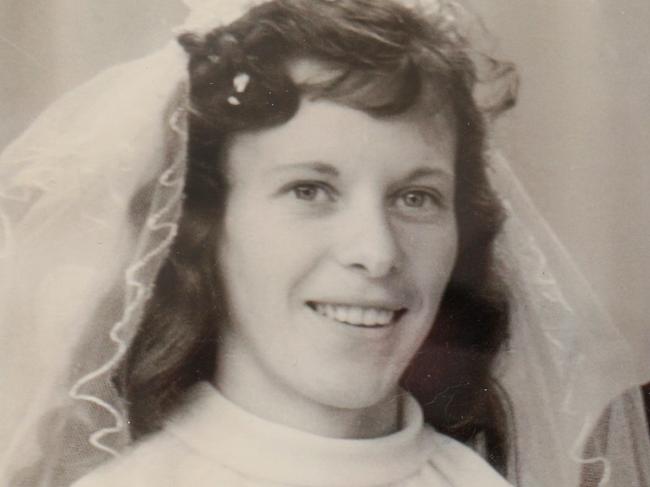
The 71-year-old was admitted in 2008. It was a planned five-week stay to treat chronic pain but she only stayed two weeks after being mistreated. Ms Johnston told her family how she was in a wheelchair and had been thrown down on to a toilet and left there, despite ringing a bell for 30 minutes. An employee came back and slapped her across the face and swore at her. The family tried to raise the incident with management, but said they were fobbed off.
JIM BAFF
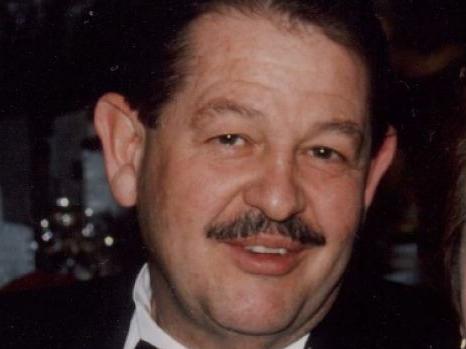
Mr Baff was assaulted by a staff member of Oakden’s Clement House. His wife, Lorraine, told how he was restrained in a chair and the employee stomped on his legs. The worker was stood down and police laid charges. Mrs Baff raised care concerns about the facility in 2015 — but these were dismissed by Mental Health and Substance Abuse Minister Leesa Vlahos.
ERMANNO SERPO
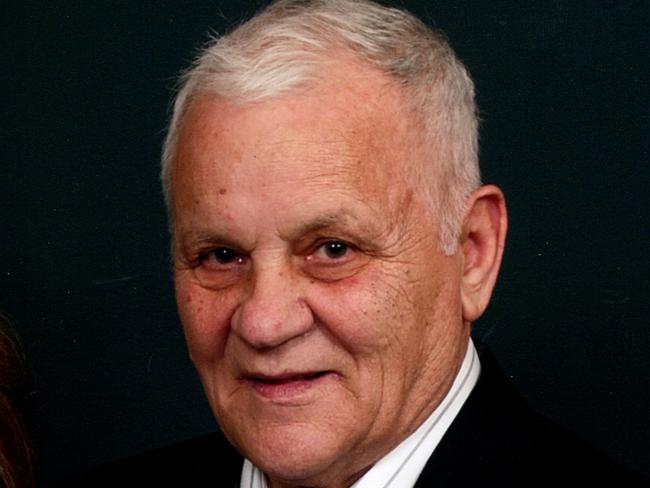
A staff member allegedly grabbed Mr Serpo by the throat and threw him on to a couch in December 2013. His wife, who witnessed the incident, reported the matter. His family said that he was so over-medicated while at the facility he would eat with his eyes shut, was unable to walk and had five unsupervised falls in the week leading up to his death on April 24 last year.
DODGY ACTIVITIES: WE HAVE A RIGHT TO KNOW
W HY does corruption happen? Because deals are made behind closed doors.
Money changes hands, mates give favours, decisions are made, and the public is kept in the dark. Politicians and public officials are not held to account and the undue influence of private interests continues.
What can change this? Anti-corruption investigations with public hearings shed light on shady decisions of government and the public sector. They allow the community to hold their representatives to account. They expose corruption and misconduct and give us confidence that investigations are carried out fairly and in the public interest.
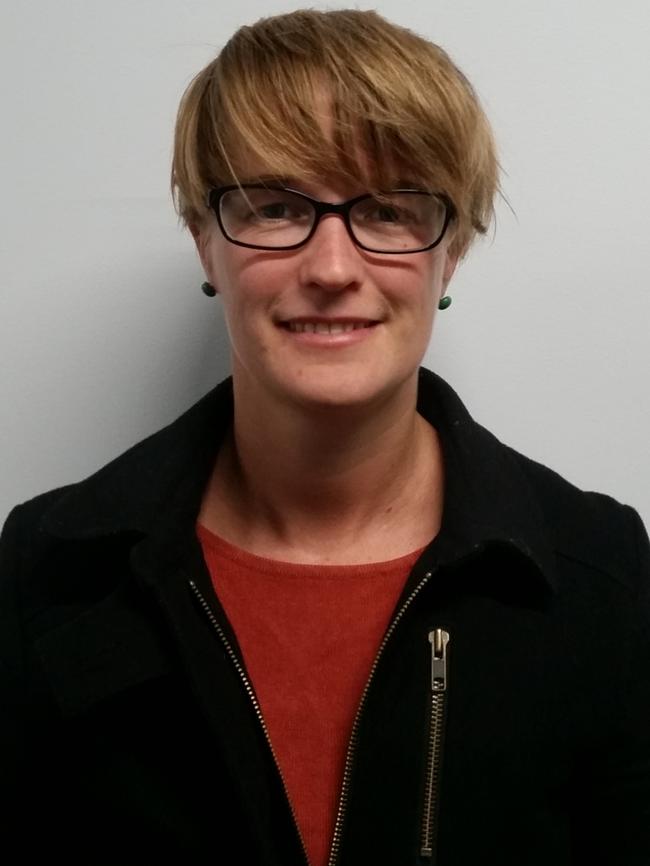
The very act of bringing corruption into the public view diminishes its power. Holding anti-corruption investigations in private continues the culture of opaque decision-making and shady deals can continue to be done.
Private hearings are important in the beginning but, as the investigation progresses, the commissioner must have the option to open the doors in the public interest.
The South Australian Independent Commission Against Corruption is the only anti-corruption watchdog in Australia that cannot hold public hearings.
In contrast, the NSW ICAC holds regular public hearings. It has been critical exposing systemic corruption, including the investigations of Labor ministers Eddie Obeid and Ian Macdonald.
In these public hearings, hundreds of witnesses came forward with information that was vital to progressing the investigation.
Why don’t some politicians like public hearings? Because they work. Without public hearings, the only way that a commission can expose corruption is through its final investigation report.
Without public hearings, corruption could be found in our public sector with no one knowing about it.
Reflecting on this, NSW ICAC commissioner, David Ipp QC has said: “Its main function is exposing corruption; this cannot be done without public hearings.”
Corruption happens with deals done behind closed doors. Anti-corruption investigations must open these doors and let the public in.
■ Hannah Aulby is the accountability and the law conference director at the Australia Institute
TRANSPARENCY VITAL TO FIGHT CORRUPTION
T HE South Australian ICAC legislation poses the very real risk that investigations will be driven underground – and has even been criticised by its commissioner, Bruce Lander.
It is very disappointing that SA continues to go its isolated way in this regard compared to other Australian jurisdictions.
Transparency International Australia firmly believes that public hearings for the purpose of an investigation are, in proper situations, essential for the effective operation of an anti-corruption agency.
However, public hearings must not occur as a matter of course and it is appropriate to ensure that unfair reputational damage is not caused.
Public examinations must be available in carefully defined situations and not otherwise.
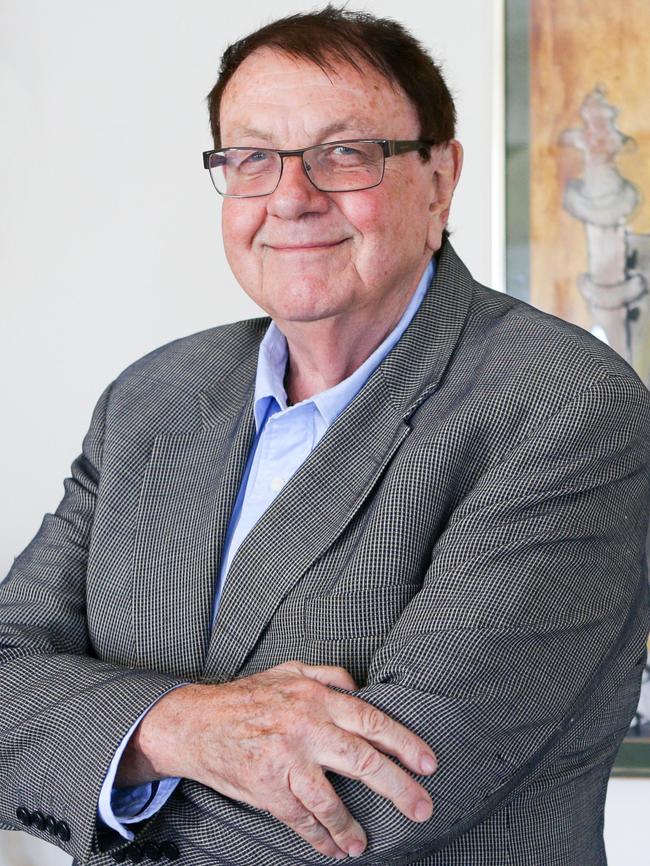
Public hearings are essential in proper cases. The real question is what statutory barrier should be in place to ensure that public hearings do not occur simply as a matter of course.
The decision of the NSW ICAC to take this approach, at times, has been the primary trigger for it to come under political and media scrutiny, notwithstanding that its power to do so has never been successfully challenged in any court.
There are those who persist in advocating against public hearings in any circumstances.
This point of view is misguided. It is often the view of those whose conduct has been found to be corrupt.
It is not a view shared by Victoria’s Independent Broad-based Anti-corruption Commission (IBAC) or by Queensland’s Crime and Corruption Commission (CCC). Each of these bodies has held public hearings in serious cases of corruption.
In NSW, the Gleeson/McClintock Review noted that public hearings are essential to the uncovering of serious corruption and to facilitate its prevention.
Public hearings may also be necessary to allow witnesses to come forward and provide useful information to the continuation of the investigation. This has proved to be the case in the ICAC investigations into disgraced former Labor ministers Eddie Obeid and Ian Macdonald.
■ Anthony Whealy QC is chairman of Transparency International Australia and a former assistant commissioner of ICAC NSW


